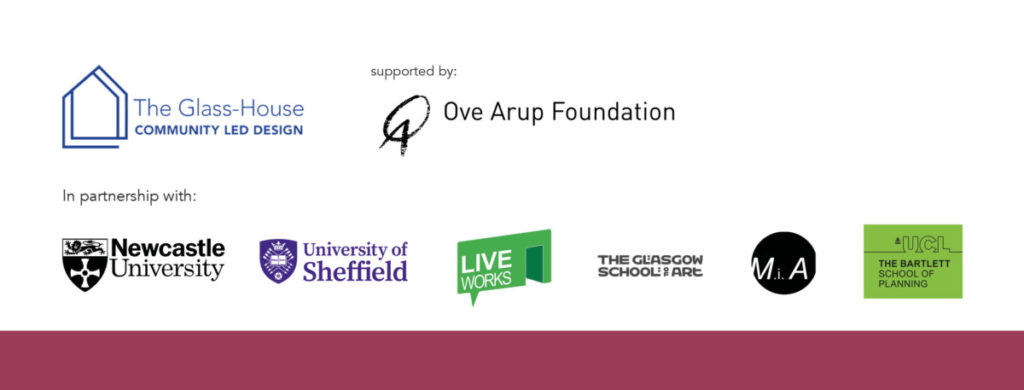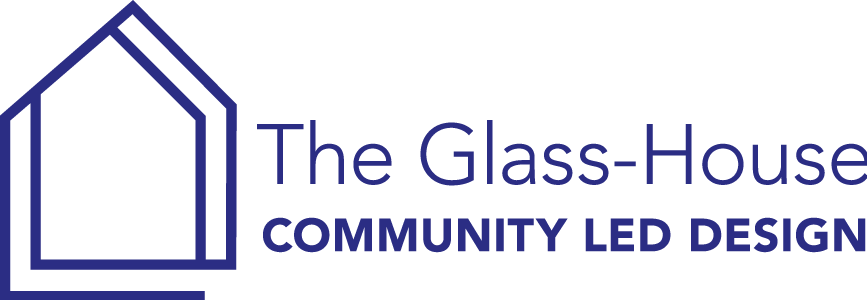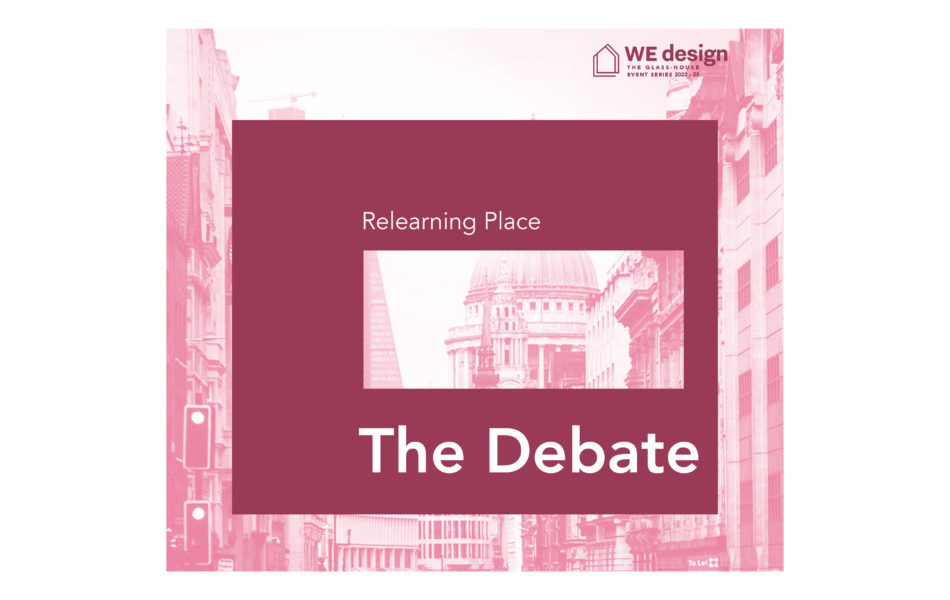Written by:
The WEdesign programme for 2022/23 started last week, with our inaugural event Relearning Place: The Debate, which took place online. We were joined by over 40 participants dialling in from around the country, representing a wide range of interests, disciplines and backgrounds.
Using the theme of Relearning Place as our starting point, we invited four diverse speakers to offer their provocations and thoughts as part of a series of five-minute presentations. This was followed by a stimulating and thought-provoking discussion with generous contributions and opinions from the event attendees.
Our first speaker was Johanna Gibbons, a London-based landscape architect and founding partner of the landscape architecture studio J & L Gibbons, and Landscape Learn. Johanna spoke passionately about the value of trees and nature in our urban environments, the importance of access to nature for all and offered the provocation of ‘de-paving the city’. She stressed that trees and plants offer an answer to all major human crises and that the forest is an important and silent hero, “We shape the forest and the forest shapes us”.
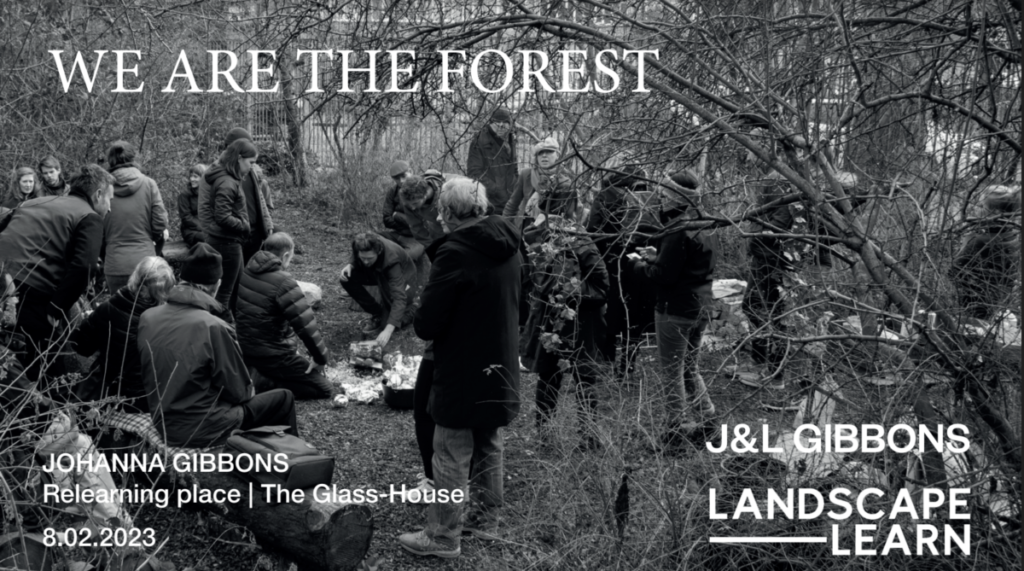
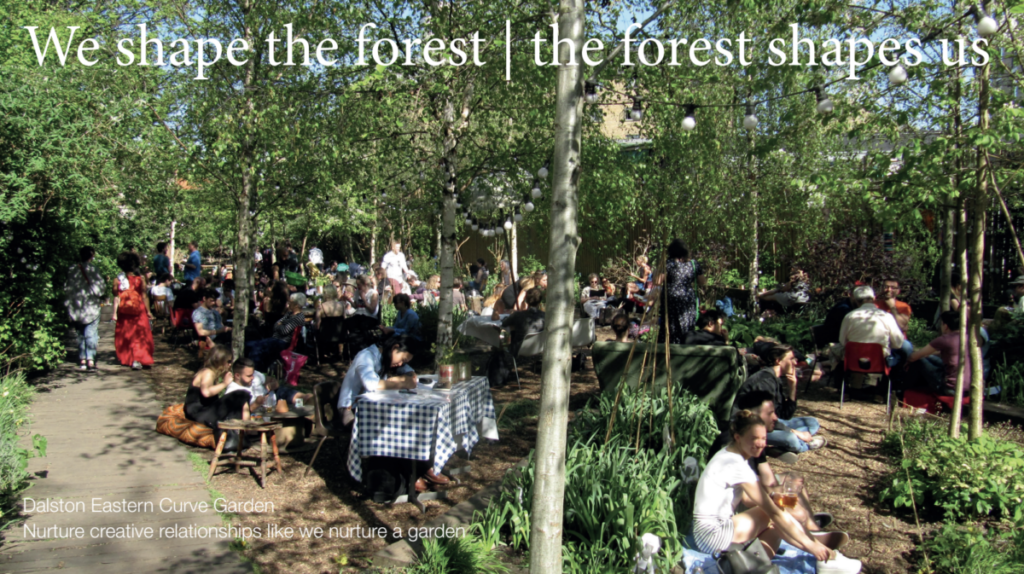
Our second speaker, David Ubaka, offered a slightly different consideration about the role of communities and the importance of education in creating equitable spaces. David, who is a leading architect and urban designer based in London, founded D.U.P Limited in 2012 and has delivered projects across industries and sectors over the last 30 years. David spoke about the lack of interdisciplinary conversations or community engagement at the beginning of placemaking projects, and suggested we rethink how built environment professionals are educated. He advocated greater connectivity across degree courses and a foundation course on place for everyone.
Shankari Raj offered a provocation which asked why our spaces are designed and built for and by men, questioning why there is so little consideration for the basic requirements of women and children across the built environment. Shankari is an architect, educator and agitator based in Bristol, who set up her practice Nudge to try to make the world a better place through architectural design. Shanks spoke about the need for inclusive and accessible spaces, and how the lens of motherhood allowed her to see the inequality particularly in the built urban environment. She suggested designing everywhere with toddlers in mind to help improve accessibility, creating more playful and engaging environments that can soften the hard edges of places.
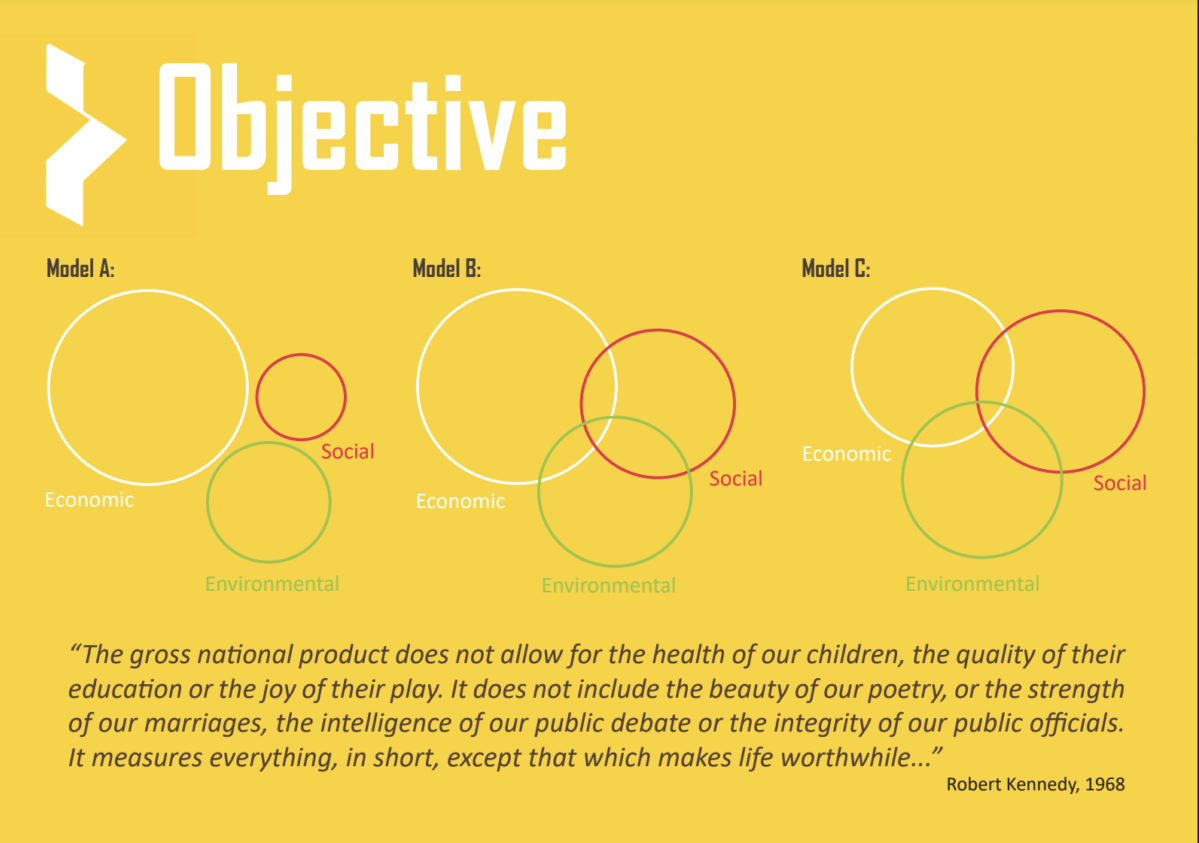
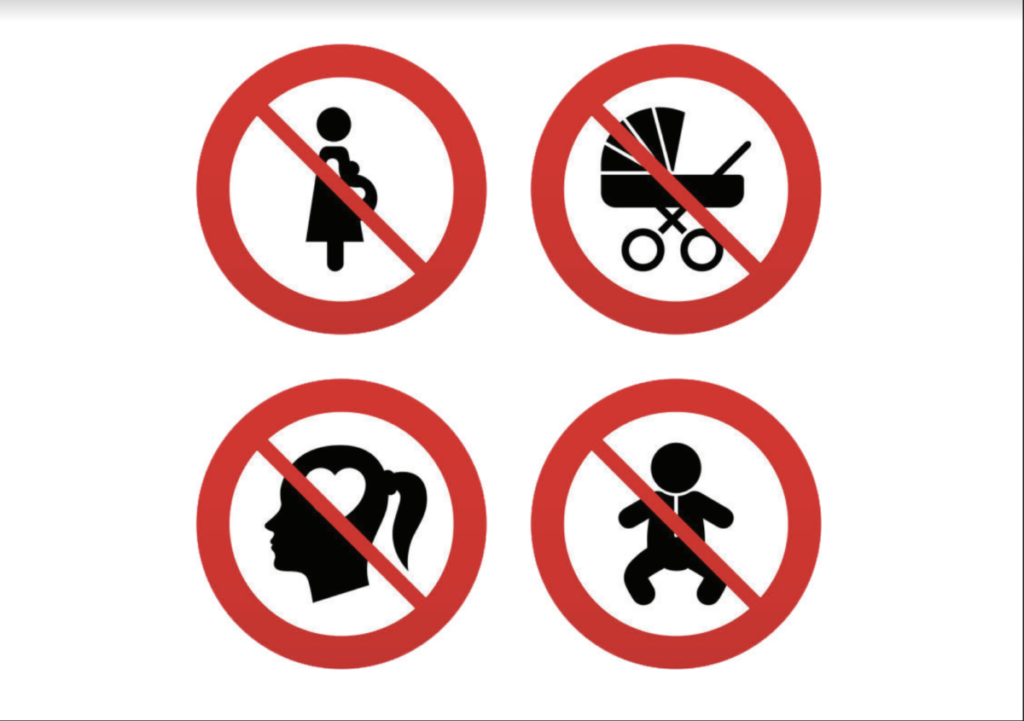
‘Are you prepared to pick up dog sh*t?’ was Erika Rushton’s honest provocation around how direct action can be a powerful first step to making bigger changes in an area. She argued that change is not achieved by making strategies and mapping in an office, but that it starts with people identifying issues or opportunities in a local area and acting on them. Erika is an artist and economist from the Northwest. She founded Creative Economist, an organisation that specialises in creative and community entrepreneurship and our collective capacity to transform places through building locally-based economies. Erika also questioned whether it is possible to design the “perfect place” and said that we need to stop designing finished places, but create messy ones that encourage people and communities to get involved and make them their own.
The debate was chaired by Sophia de Sousa, Chief Executive at The Glass-House. The discussion that followed was as lively and provocative as the speakers’ presentations, with wide ranging comments, opinions, thoughts and viewpoints from our generous attendees.
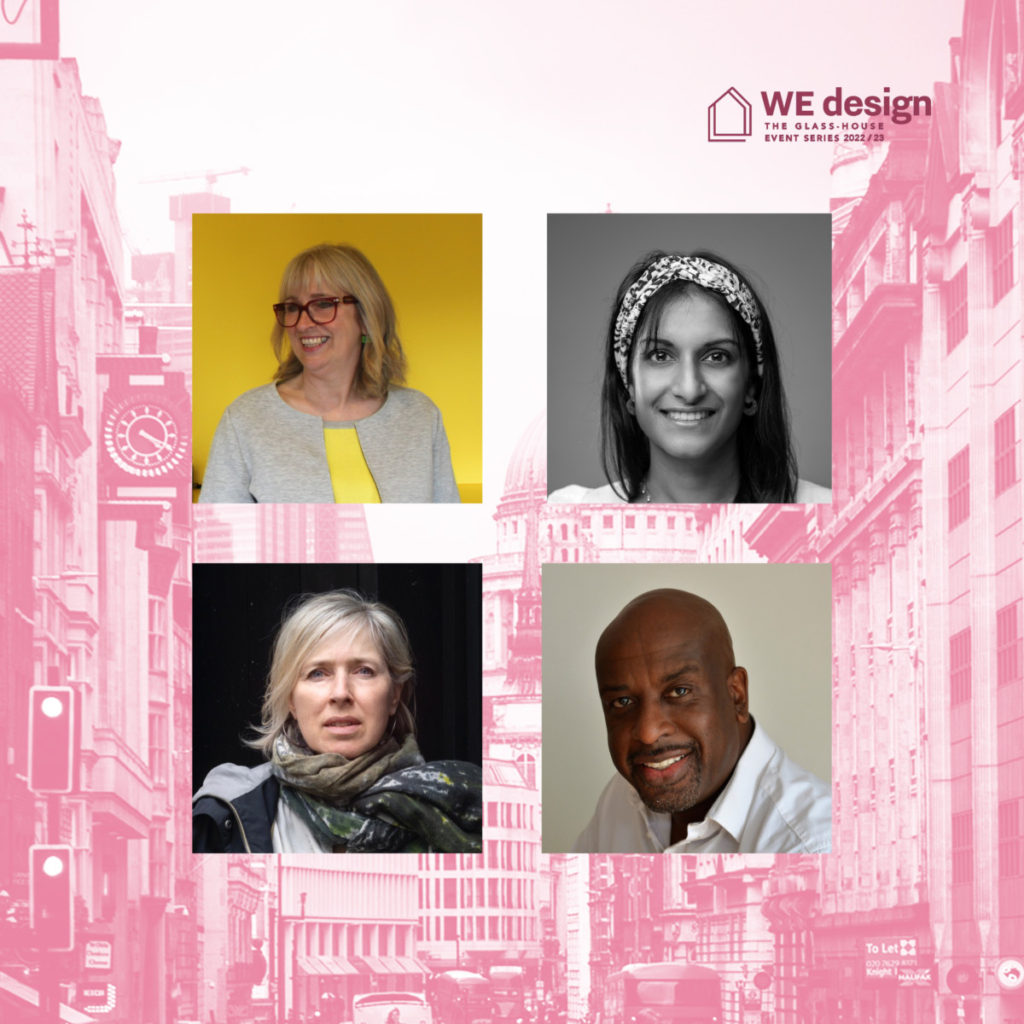
One attendee questioned how we can de-pave our urban spaces whilst keeping our accessibility, and spoke of logistical and accessibility challenges with green cities, echoing Shanks’ comments around making sure we design for all people and their lives.
Another member of our audience pointed to streams and waterways as a metaphor for placemaking. He spoke beautifully about the synergy between water movement and human movement, “The metaphor of a mountain stream contains useful inspiration for a rewarding and beguiling urban space: both benefit from a rich diversity of ‘CHANNELS AND EDDIES”.
‘No place is ‘perfect’ unless it continues to change and evolve!’ was a strong viewpoint from our debate audience, echoing Erica’s argument.
One attendee suggested that ‘early involvement in the whole community…. holds the key “to relearning our places. This simple answer is to ask “What do you want this space/place to do for you?”.
We collectively explored the word ‘citizenship’, asking whether this is a more fruitful term than community volunteering? One participant affirmed that we should “get solutions to problems from the people” which was met with a challenge questioning if the community is ‘always right? “
One attendee spoke about a community and cross-sector initiative in Scotland , part of Scotland’s Green Plan. Whilst in lots of ways had been exemplary, she stressed that even then there was a power imbalance. She commented that they didn’t always have the power to successfully push things through. Even something as simple as needing a tap to water plants as part of a community garden caused challenges with the designers and didn’t happen, even though it was common sense.
“We are trying” was a comment from one attendee who works in local authority planning and development. She spoke about the challenges on the ground and the sheer complexity of who is involved in these projects, which does complicate the decision-making process. She also spoke about a project in Greater Manchester that she is involved in, which is putting older citizens at the core “We do know we need to do more work on intergenerational dialogue”.
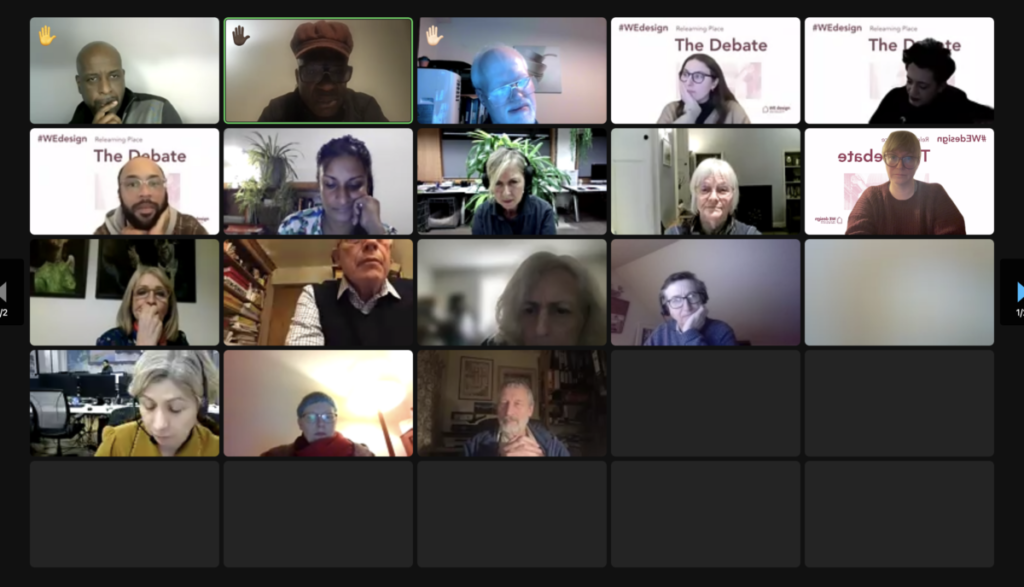
These are a glimpse of just a few of the many passionate discussions from The Debate, exploring whether we have to unlearn to relearn what we know about place and placemaking and what action we need to take to help us create more inclusive, vibrant and sustainable places. It was clear that the role of communities in this conversation is important, as well as the consideration for our environment and green spaces. A strong consensus that emerged was that change can only happen if we rethink how we educate professionals in order to shift their practice and also to improve education to encourage children and young people to think about how they use spaces and how spaces work best for them.
Relearning Place: The Debate really did kick off the WEdesign 2022/23 event series in style, and we are grateful to both the diverse range of people who joined us last week and to our speakers for giving us their time and expertise.
Although it has been tough to distil the many conversations into a short blog, I think the overarching themes that emerged are a good way to give a flavour of this event. The debate did throw up some important questions, which I’m sure will provoke further conversations and reactions in the future, including:
- What is the right balance between formal placemaking, through development or regeneration, and organic, incremental change though local action?
- How can we work more collaboratively with our natural environment and ecosystems to improve the quality of our places and in turn our physical and mental wellbeing?
- What role can education, be it in primary school or built environment professional qualification, play in helping us shape our places better?
- Where is the right interface between practitioners and communities in shaping places, and how do we bring together the best expertise, actions and general contribution from all involved?
We look forward to exploring all of these themes further through our upcoming live events…
If you were unable to join us at Relearning Place: The Debate, we have included a recording of the event which we hope you will enjoy listening back to.
More information about our live events and details about how you can book can be found here.
